Filter by

Discourse and digital practices : doing discourse analysis in the digital age
- Edition
- -
- ISBN/ISSN
- 9781315726465
- Collation
- -
- Series Title
- -
- Call Number
- -
- Edition
- -
- ISBN/ISSN
- 9781315726465
- Collation
- -
- Series Title
- -
- Call Number
- -
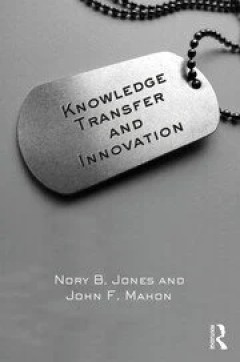
Knowledge Transfer and Innovation
Knowledge? : what knowledge? -- Explosive innovation : putting knowledge to work -- Leadership -- Culture -- Knowledge corruption -- Training and socialization -- Knowledge structure and processes -- Technologies and social media -- Putting it all together -- A "Rosetta stone" for military skills translation to business.
- Edition
- -
- ISBN/ISSN
- 9781315200163
- Collation
- -
- Series Title
- -
- Call Number
- -

Start-up wolf: the Shenzhen model of high-tech entrepreneurship
Introduction: Start-up wolf of Shenzhen -- Contextualising transnational entrepreneurs in China -- Performative governance: the campaign of mass entrepreneurship and innovation -- To be entrepreneured: creating hierarchies among privileged biographies -- Entrepreneurship competitions: the state and market ideals of talents -- Striving talents: performing excellence for economic privilege -- Pre…
- Edition
- -
- ISBN/ISSN
- 9781003456339
- Collation
- -
- Series Title
- -
- Call Number
- -

Internet of things - the call of the edge: everything intelligent
- Edition
- -
- ISBN/ISSN
- 9781003338611
- Collation
- -
- Series Title
- -
- Call Number
- -
- Edition
- -
- ISBN/ISSN
- 9781003338611
- Collation
- -
- Series Title
- -
- Call Number
- -

Managing sustainable luxury and digitalization :technology trends and ethical…
Defining luxury in the watch industry: exploring the gestalt of Swiss luxury watches -- Trends and challenges in the Swiss luxury watch industry: insights from an expert survey -- Luxury watches and ethical hubris: a comparative overview of illustrative cases -- Gestalt-switch of luxury products: exploring pitfalls of inconsistent value expressions in conspicuous consumption -- "Some of my cust…
- Edition
- -
- ISBN/ISSN
- 9781003397205
- Collation
- -
- Series Title
- -
- Call Number
- -

Sharing cities :a case for truly smart and sustainable cities
The work makes a case for understanding cities as shared spaces and venues for collaboration; and proposes policies and practices to share cities fairly. It argues that with modern technologies the intersection of urban space and cyberspace provides an unrivalled platform for more just, inclusive and environmentally efficient economies and societies rooted in a sharing culture.OCLC-licensed ven…
- Edition
- -
- ISBN/ISSN
- 9780262329705
- Collation
- 1 online resource (x, 445 pages) :illustrations.
- Series Title
- -
- Call Number
- -
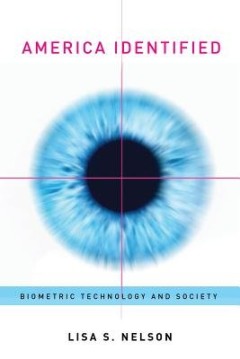
America Identified: Biometric Technology and Society
An examination of the public perception of biometric identification technology in the context of privacy, security & civil liberties.OCLC-licensed vendor bibliographic record.
- Edition
- -
- ISBN/ISSN
- 9780262289689
- Collation
- 1 online resource (viii, 258 pages) :illustrations
- Series Title
- -
- Call Number
- -
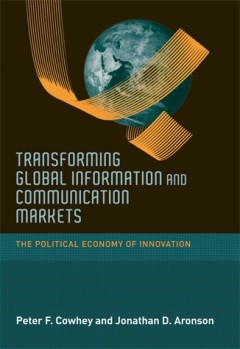
Transforming Global Information and Communication Markets: The Political Econ…
Innovation in information and communication technology (ICT) fuels the growth of the global economy. This examination of ICT from a political economy perspective argues that innovation and economic growth require new approaches in global governance that will reconcile diverse interests and enable competition to flourish.
- Edition
- -
- ISBN/ISSN
- 9780262255066
- Collation
- -
- Series Title
- -
- Call Number
- -
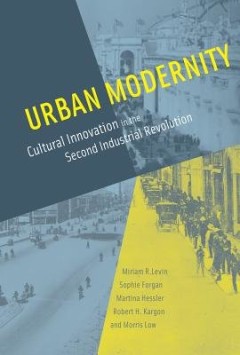
Urban Modernity: Cultural Innovation in the Second Industrial Revolution
At the close of the 19th century, industrialization and urbanization marked the end of the traditional understanding of society as rooted in agriculture. This book examines the construction of an urban-centred, industrial-based culture - an entirely new social reality based on science and technology.OCLC-licensed vendor bibliographic record.
- Edition
- -
- ISBN/ISSN
- 9780262265935
- Collation
- 1 online resource (x, 272 pages) :illustrations, maps
- Series Title
- -
- Call Number
- -
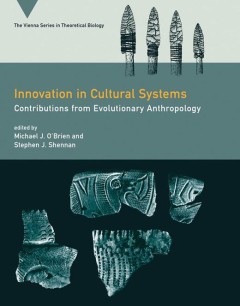
Innovation in Cultural Systems: Contributions from Evolutionary Anthropology
Here, leading scholars offer a range of perspectives on the roles played by innovation in the evolution of human culture. The contributors consider innovation in biological terms discussing epistemology, animal studies, systematics and phylogeny, phenotypic plasticity and evolvability, and much more.OCLC-licensed vendor bibliographic record.
- Edition
- -
- ISBN/ISSN
- 9780262259101
- Collation
- 1 online resource (xi, 284 pages) :illustrations.
- Series Title
- -
- Call Number
- -
 Computer Science, Information & General Works
Computer Science, Information & General Works  Philosophy & Psychology
Philosophy & Psychology  Religion
Religion  Social Sciences
Social Sciences  Language
Language  Pure Science
Pure Science  Applied Sciences
Applied Sciences  Art & Recreation
Art & Recreation  Literature
Literature  History & Geography
History & Geography